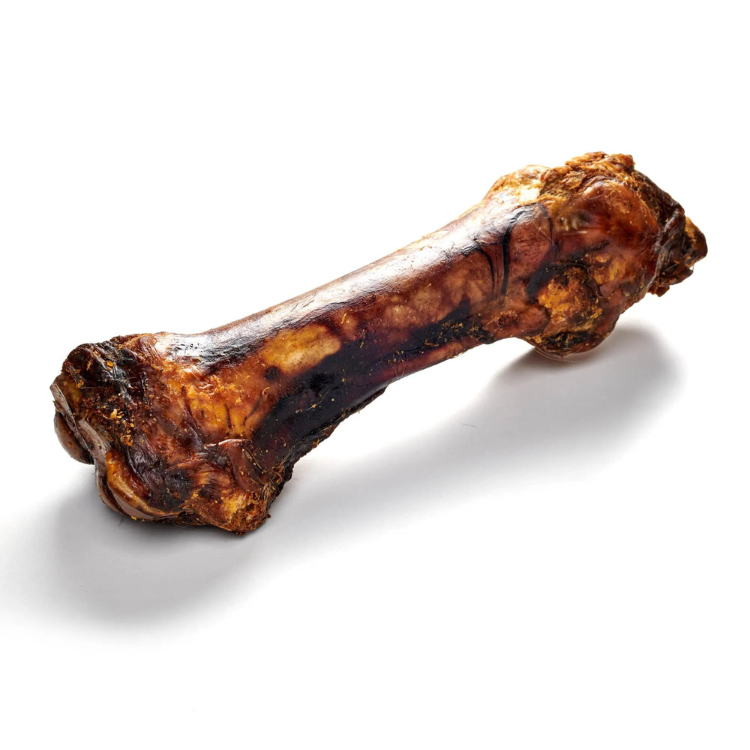
Veterinarians for dogs - what you should pay attention to
Share
Finding the right vet for our four-legged friend can be a bit of an odyssey. A good vet is not only a medical professional, but also a confidant who is there to help in crucial moments. The dog's well-being and health depend to a large extent on this important decision.
A competent veterinarian can not only detect diseases early and treat them effectively, but is also a valuable advisor in all questions of care and prevention. For many of us, our dogs are more than just pets - they are loyal companions who have a permanent place in our everyday lives.
Contents: Veterinarians for dogs - what you should pay attention to
- Qualifications and experience
- Practice and equipment
- Empathy and communication
- Services and offers
- Costs and insurance
- Guide to the ideal veterinary practice
- Conclusion
If you are looking for the right vet, you should not only look for specialist knowledge and experience, but also whether there is a good chemistry between the dog, the owner and the vet. Ultimately, it is about everyone involved feeling well looked after - from the first puppy visit to the dog's old age.
Discover the range of dog snacks in our store!
Qualifications and experience
Choosing the right veterinarian is not an easy decision and should be carefully considered. Two key factors that play a decisive role are the veterinarian's qualifications and experience. These aspects are not only an indicator of professional competence, but also of the veterinarian's ability to respond appropriately to various veterinary challenges. A veterinarian with the appropriate qualifications and professional experience can give you the confidence that your dog is in the best hands.
In Germany, only those who meet certain legal requirements are allowed to work as a veterinarian. These include:
- A completed degree in veterinary medicine
- An official license to practice the profession
These requirements are prescribed by law and serve to ensure that veterinarians have a high level of professional competence. Without a completed degree and a license to practice, it is not permitted to work as a veterinarian in Germany. This ensures that only qualified and well-trained people take on this responsible task.
But what use is a solid basic training if it is not constantly updated? Continuing education and training are essential because they ensure that the veterinarian always stays up to date with the latest medical developments and can use the most modern treatment methods. After all, medicine is constantly evolving and dogs should only receive the best possible care.
Not to be forgotten is practical experience. A veterinarian with many years of professional experience brings with him a wealth of knowledge and skills that cannot be taught in any training.
Particularly advantageous is:
- Many years of practice in veterinary medicine
- Specialized knowledge in the treatment of dogs
An experienced veterinarian often has a better feel for diagnoses and can draw on a wealth of experience. This makes treatment not only more effective, but also safer. The focus here is not just on theory, but on actual skills and experience gained in dealing with different animal patients. But of course young veterinarians also have their advantages. They may be better informed about new treatment methods and generally more open to new approaches in medicine. But of course no blanket statement can be made here.
Practice and equipment
The choice of a veterinary practice should be carefully considered, as the practice's equipment and organization play a key role in the quality of veterinary care. These factors contribute significantly to making precise diagnoses and carrying out effective treatments.
A modern and well-equipped practice is crucial for the quality of veterinary care. This includes:
- Clean and well-organized examination rooms: A clean and tidy room creates a pleasant atmosphere and ensures that all necessary instruments are quickly at hand.
- Modern diagnostic equipment: X-ray and ultrasound machines are essential for making accurate and rapid diagnoses.
- Laboratory equipment for rapid diagnosis : A well-equipped laboratory allows blood tests and other tests to be performed on-site, saving time and enabling a rapid response to health problems.
This equipment allows the veterinarian to carry out a variety of examinations and treatments directly on site, which is important for fast and effective care. Your animal will receive the best possible care, without long waiting times and unnecessary referrals. The availability and accessibility of a veterinarian are also important factors.
A practice should:
- Be easily accessible during regular office hours so you can easily make an appointment
- Offer emergency appointments, because health problems do not always adhere to regular opening hours
- Ensure clear communication of emergency numbers and on-call services in order to be able to act quickly in an emergency
These aspects ensure that you and your four-legged friend always receive the necessary support, even in urgent cases. A well-organized and equipped practice gives you the security that your furry friend is in the best hands.
Spoil your four-legged friend with our delicate chew items!
Empathy and communication
The vet's empathy and communication skills are crucial for a trusting relationship between your dog, you and the doctor. These "soft" factors contribute significantly to your dog's well-being.
A good vet is characterized by a high degree of empathy. Dealing with stressed or anxious dogs requires patience and empathy. An empathetic vet can calm the animal and create a pleasant atmosphere that makes the visit to the practice less stressful.
The vet's communication style is also very important. A good vet should be able to explain complex medical issues in an understandable way and clearly present various treatment options. Openness and transparency in the conversation will help you as a dog owner to make informed decisions for the well-being of your animal.
Services and offers
An important aspect when choosing a veterinarian is the variety of services offered. In addition to the basic services, specialized additional services are also of great interest.
The basic services provided by a veterinarian include routine examinations, vaccinations , deworming and the treatment of other dog diseases . These services are essential for keeping the dog healthy and should be offered in every practice.
In addition, additional services such as tartar removal, nutritional advice, physiotherapy and behavioural therapy can be of great importance. These specialised services offer comprehensive care and can significantly improve your dog's quality of life. A veterinary practice that offers such services can ensure that your dog is optimally cared for in all situations.
Costs and insurance
Costs and insurance can vary greatly from veterinary practice to veterinary practice, which can greatly influence your decision and financial planning.
Pricing varies greatly. Some vets have higher base prices, while others are cheaper. Transparent pricing is particularly important. It should be possible to get a clear overview of the costs of the various services. This helps to avoid unexpected expenses and plan the budget better.
There are also differences in the acceptance of pet health insurance. Not every veterinary practice accepts every insurance, so it is important to clarify this in advance. A good vet should accept various insurances and help you with the insurance formalities. This makes financial planning easier and ensures that your dog receives the best possible treatment without you having to worry about the bill.
Guide to the ideal veterinary practice
Knowing the qualities of a good veterinarian is the first step. The next step is to use that knowledge to find the perfect practice for you and your dog. Here are some steps to help you:
Use recommendations and reviews
Testimonials from friends, family and other dog owners are a goldmine of information. In addition, online reviews on platforms such as Google or Jameda offer further insights. These reviews are particularly useful for identifying differences in the quality of veterinary practices depending on the region.
Find the right veterinarian through personal experience
A visit to the practice can be crucial. Pay attention to cleanliness, order and atmosphere. A well-organized practice with friendly staff and modern equipment is a sign of professionalism. Use an initial trial session to get to know the vet and the practice team and see how they deal with your dog.
Where you live can affect your choices. In rural areas, there may be fewer choices than in urban areas, where there is often more choice. It may be necessary to try out different practices before you find the right one. Although this can be time-consuming, it is the best way to find a practice where you and your dog feel completely comfortable.
The following steps will guide you through the process of selecting a veterinary practice and help you utilize all the resources to make the best decision for your dog's well-being.
Conclusion
Finding the perfect veterinary practice requires careful consideration of many factors. Recommendations and reviews from other dog owners provide valuable insight and help you find initial clues. A personal visit to the practice is essential to get your own impression and to ensure that both you and your dog feel comfortable.
Regional differences can affect the choice, so it's important to compare multiple practices and be open to different options. Ultimately, finding the ideal veterinarian often means trying out different practices.
Although this can be time-consuming, it is the best way to ensure that your dog receives the best possible care. With patience and careful examination, you will find the practice that is both medically and humanly convincing and where your dog will be in the best hands.
Dog chews available for happy and satisfied four-legged friends!















